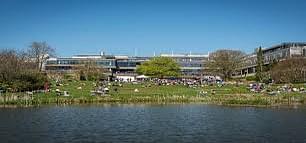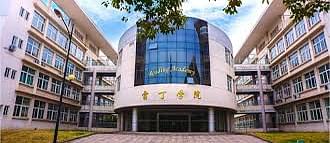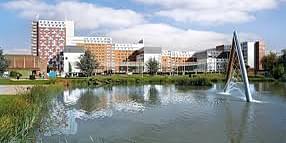Why choose this course?
- This Human Biology course will equip you with subject knowledge and transferable skills that you can apply to a whole range of roles, from a clinical perfusion scientist to a medical events organiser.
- You will get the opportunity to go on exciting work placements to enhance your career opportunities through our established links with local bioscience organisations and hospitals.
- You will gain the practical skills employers require by using our state-of-the-art equipment such as electron and confocal microscopes.
- You will get to know the other students and lecturers on your course well, as we keep our practical classes small.
- Our academics are keen to involve you in our research groups, exploring subjects such as genetic damage induced by radiation, the mechanisms of nicotine addiction and how heart and lung functions are controlled in health and disease.
The Human Biology (Hons) is offered by Oxford Brookes University.
Teaching and learning
You will be taught and assessed in a variety of ways appropriate to the range of knowledge and skills covered in the course. Teaching methods include lectures, practical work and small group assignments such as the preparation and presentation of posters. Throughout the course, emphasis is placed on general transferable skills, such as computer use and report writing. These skills are reinforced by both teaching and practice and often form part of the assessment of individual modules.
Teaching and learning takes place within a lively environment of research activity involving academic staff and postgraduate students in such areas as sports physiology, metabolic regulation and social aspects of disease.
The close links that staff maintain with other subjects in the Faculty of Health and Life Sciences ensure that the content of the course is up to date and reflects the changing needs of employers.
Approach to assessment
The course includes a variety of teaching, learning and assessment methods that are informed by contemporary practice in science teaching in higher education.
Assessment methods include essays, reviews, examinations, laboratory or field notebooks, scientific reports, posters and oral presentations. Reflective learning is encouraged through use of self, peer or staff formative feedback on assignments, group work and project work, and reflective diaries. The relative contribution of coursework and examination to the final module mark may vary between modules.
TOP Scholarships
| Scholarship name | Award amount | Eligibility |
|---|---|---|
| - | - | - |
| - | - | - |
| - | - | - |
Key Resources for Your Study Abroad Journey
Scholarship Grants & Financial Aids
| Name | Scholarship Per Student | Level of Study | Type | |
|---|---|---|---|---|
| VueVille Future Technology Scholarship | Scholarship per student£ 1,000/Yr$1,000 | Level Of StudyBachelor | TypeMerit-Based | |
| Monica Cole Research Grant | Scholarship per student£ 1,291/Yr$1,291 | Level Of StudyApprenticeship | TypeMerit-Based | |
| 1st Formations Business Scholarship | Scholarship per student£ 800/Yr$800 | Level Of StudyBachelor | TypeMerit-Based | |
| (ISC)² Women’s Cybersecurity Scholarships | Scholarship per studentVariable Amount | Level Of StudyBachelor | TypeMerit-Based | |
| Collegedunia $150 Scholarship Program | Scholarship per student£ 150/Yr$150 | Level Of StudyBachelor | TypeMerit-Based | |
| Deutschland Stipendium Program | Scholarship per student£ 4,363/Yr$4,363 | Level Of StudyBachelor | TypeCollege-Specific |
Similar Colleges


Robert Gordon University


University of Aberdeen


Aberystwyth University


University of Bath


Cranfield University


Queen's University Belfast


Ulster University


University of Reading



























Comments